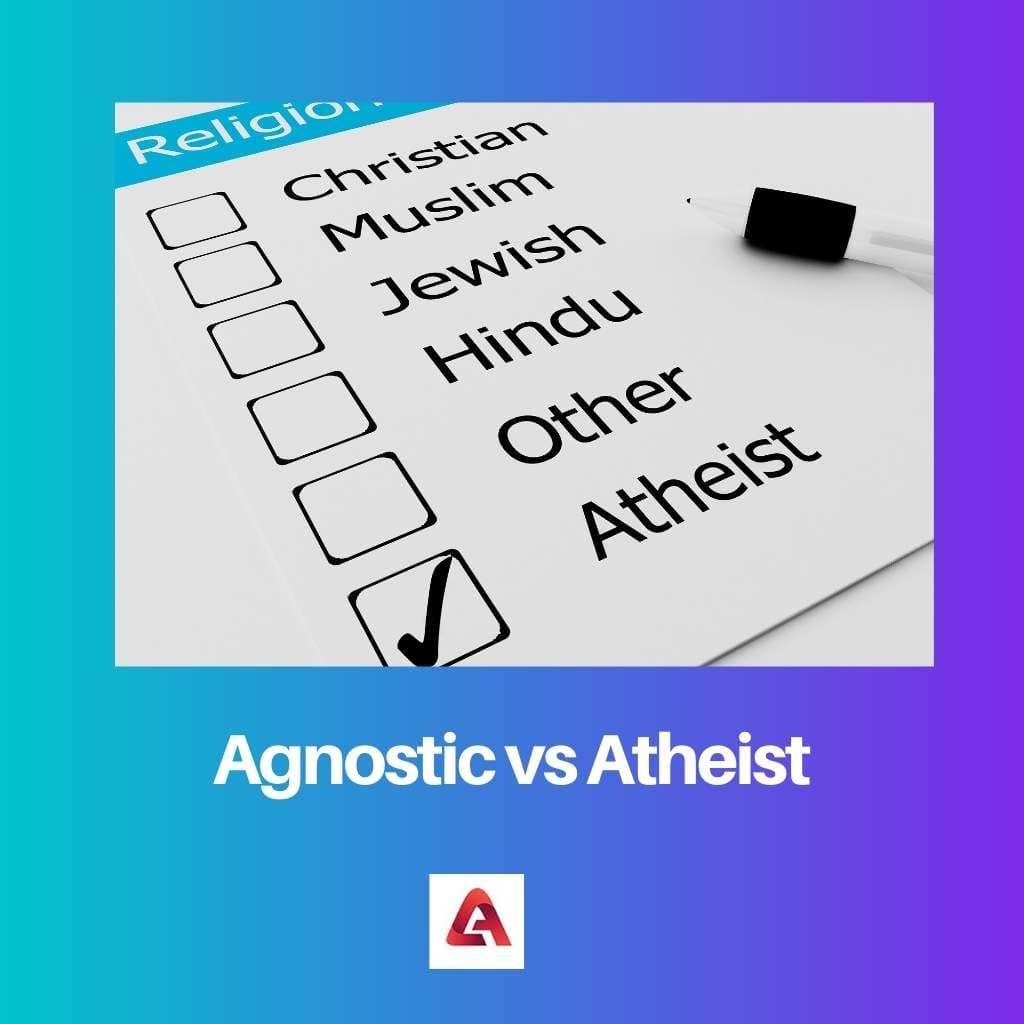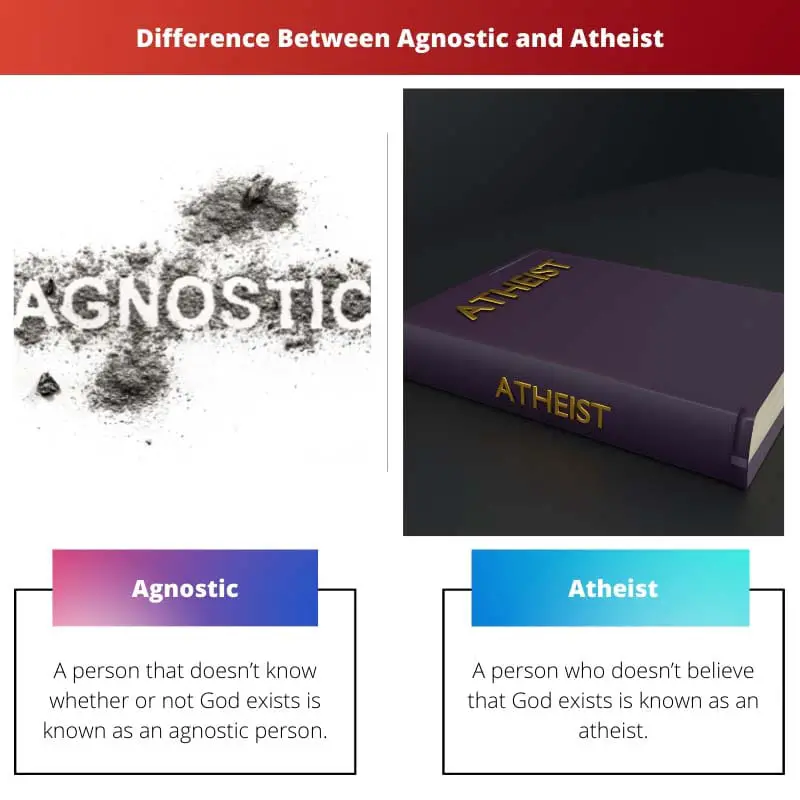There exist different beliefs in the world regarding a certain concept or a thing. Human beings are prone to believe a certain concept or are prone to not believe a certain concept. They decide to believe or not to believe a certain thing or a concept based on the facts or the information they acquire in the course of their lifetimes. These facts and information can be gathered from different sources.
However, there are different interpretations of a specific concept of the creation of the universe. Some people believe that the universe was created by the Almighty God. Some people believe that there were certain scientific reasons and processes that took place and then the universe was created.
However, many intellects and scholars have talked about the concept of believing in God or not believing in God or showing disbelief in this concept. The people who don’t know whether or not God exists are known as agnostics, and the people who believe that God doesn’t exist are known as atheists.
Key Takeaways
- Agnostics believe that the existence of God or a higher power is unknowable, while atheists disbelieve or lack belief in the existence of God or gods.
- Agnosticism focuses on the limits of human knowledge, while atheism is a stance on the existence of deities.
- Agnostics neither accept nor reject the existence of God, whereas atheists actively deny or lack belief in the existence of God.
Agnostic vs Atheist
The difference between an agnostic person and an atheist person is their belief in the concept. An agnostic person doesn’t know if God exists or not. On the other hand, an atheist person doesn’t believe that God exists. The beliefs held by people from both these categories are different from one another.

A person that doesn’t know whether or not God exists is known as an agnostic person. Agnostic people are uncertain about If God exists, and they are also uncertain about if God doesn’t exist. They choose to believe in not knowing if God exists or not. They have no security if God exists are not, and they lie between theists and atheists. The term “agnostic” was tossed in the year 1869.
A person who doesn’t believe that God exists is known as an atheist. An atheist person is certain that God doesn’t exist and choose to believe in it. Atheism is exactly the opposite of theism. The term “atheism” existed even before the fifth century and is derived from a Greek word. Atheist people have their reasons as to why they don’t believe that God exists.
Comparison Table
| Parameters of Comparison | Agnostic | Atheist |
|---|---|---|
| Meaning/ Definition | A person that doesn’t know whether or not God exists is known as an agnostic person. | A person who doesn’t believe that God exists is known as an atheist. |
| Subtypes | Strong agnosticism, weak agnosticism and apathetic agnosticism. | Weak and strong atheism |
| Belief | They neither believe nor disbelieve that God exists. | They believe that God doesn’t exist. |
| Severity | Neutral | More |
| Antonyms of | Gnostic | Theist |
What is Agnostic?
A person that doesn’t know whether or not God exists is known as an agnostic person. They have a neutral opinion regarding the existence of God. It is the exact opposite of gnostic. People lack surety regarding the fact of whether God exists or not. However, the choice is completely different from person to person.
Agnostic people are uncertain about If God exists, and they are also uncertain about if God doesn’t exist. They choose to believe in not knowing if God exists or not. They have no security if God exists are not, and they lie between theists and atheists. The term “agnostic” was tossed in the year 1869.
There are three main types of agnosticism, namely, strong agnosticism, weak agnosticism, and apathetic agnosticism. A strong agnostic strongly believes in not knowing anything about existence. A weak agnostic believes that if there occurs any evidence regarding the existence of them, he or she will believe in the existence of God.
In apathetic agnosticism, a person doesn’t bother himself or herself regarding the evidence that might occur related to the existence of God. He or she would continue to believe in not knowing whether or not God exists, irrespective of the evidence that might occur. The history of agnosticism dates back to a time when these things were completely new for people. However, today people are becoming opinionated and free to believe in whatever they think is correct.

What is an Atheist?
A person who doesn’t believe that God exists is known as an atheist. They have a neutral opinion regarding the existence of God. It is the exact opposite of theism. People do not lack surety regarding the fact of whether God exists or not. However, the choice is completely different from person to person.
An atheist person is certain that God doesn’t exist and chooses to believe in it. Atheism is exactly the opposite of theism. The term “atheism” existed even before the fifth century and is derived from a Greek word. Atheist people have their reasons as to why they don’t believe that God exists.
There are two main types of atheism, namely, strong and weak atheism. They are also known as implicit atheism and explicit atheism. Atheism has not only been contrasted with agnosticism but has also been considered compatible with it. Various aspects have been considered to distinguish various types of atheism. These aspects include range, explicit and implicit factors, positivity and negativity etc.
The history of atheism dates back to a time when these things were completely new for people. However, today people are becoming opinionated and free to believe in whatever they think is correct. The ideas that entail atheism have been initiated since the Vedic period. However, the usage of the very phrase “atheism” was first done in the sixteenth century.

Main Differences Between Agnostic and Atheist
- A person that doesn’t know whether or not God exists is known as an agnostic person. On the other hand, a person who doesn’t believe that God exists is known as an atheist.
- An agnostic person can be an atheist. On the other hand, an atheist can not be an agnostic person.
- An agnostic person doesn’t know if God exists. On the other hand, an atheist person doesn’t know to believe in the existence of God.
- Agnosticism is the opposite of gnostic. On the other hand, atheism is the opposite of theism.
- The subtypes of agnosticism include weak agnosticism, strong agnosticism and apathetic agnosticism. On the other hand, the subtypes of atheism include weak and strong atheism.





